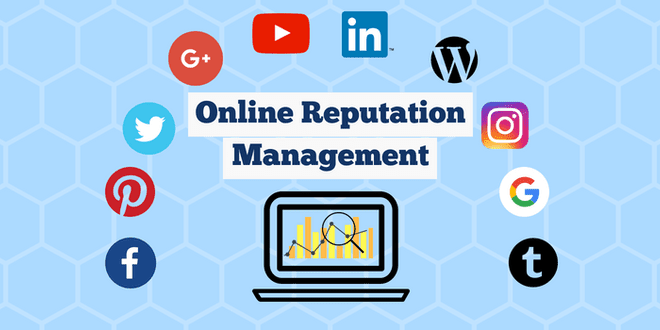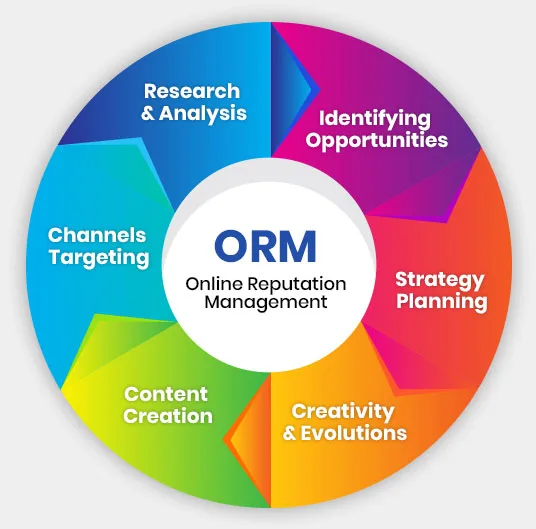SOCIAL MEDIA AND ONLINE REPUTATION MANAGEMENT: LEGAL STRATEGIES


Social media has become an indispensable part of our generation. It is a tool which has its merits and demerits. Because of the spread of social media like wildfire, Online reputation management has become extremely important. One wrong post about a person can tarnish his/her image and destroy his/her long standing goodwill. It is important to have a legal partner as your aide in case any defamatory comments are posted against you or your corporate.
At Candour legal, we are proud to be one of the leading law firms of Ahmedabad, India, specializing in the field of Defamation law. Our experienced team is led by Mr. Manasvi Thapar, one of the country’s foremost defamation law experts. We are number one law firm of Ahmedabad because our team has the necessary skills, knowledge and experience to handle critical and complex matters related to online reputation management, defamation laws etc. We are the best lawyers in Ahmedabad as we deliver legal solutions after carefully understanding the need of our clients.
The invention of social media was a revolution that humankind needed as the world was getting more global and homogenous. As people migrated more in search of opportunities and a better life, social media was the medium to stay connected with friends and family.
The rise of social media was like a whirlwind. Platforms like Facebook, Twitter, and Instagram reformed communication and stimulated connection and community building. Besides the benefits of social media platforms, the new revolution poses an erratic challenge: Managing Online Reputation.
In this era of wokeness and troll culture, where anything and everything can be criticised and trolled, a single post, tweet, or review can impact an individual’s reputation or significantly affect an organisation’s brand value. This article aims to critically analyse the intricate relationship between social media and the online reputation of users in India and what legal protections social media litigations offer them.
The Impact of Social Media on Online Reputation
There is no doubt that social media impacts our online reputation. We live in a world where the number of followers, likes, and comments decides a person’s worth. Well, there is nothing wrong with creating a positive image online, creating engaging content, and enhancing one’s digital footprint, but it surely does distance you from your true self.
Positive comments validate you temporarily, and the same platform that praises you can quickly turn into hatred. Defamatory comments, charged by anonymity and the ease of virality, can corrode public trust and brand image with rocketing speed. In India, where brands flourish online by relying on personalities with many followers to promote their products, a tarnished online reputation can translate into significant economic and emotional consequences.
Multiple studies support the claim that social media significantly impacts online reputation in India. Specifically, online reviews greatly influence the purchasing decisions of Indian Social media users. In 2023, a study revealed that 78% of Indian Internet Users consider online reviews critical before purchasing. Furthermore, a study found that over 60% of Indian adolescents during the survey reported that they had experienced cyberbullying and experienced symptoms of anxiety and depression because of the backlash they received online.
LEGAL PROTECTION AGAINST DEFAMATION AND SLANDER
Indian Criminal Jurisprudence has provisions to tackle online hate and defamation users receive by offering them legal recourse through statutes. Here’s a detailed breakdown of the essential legal provisions:
The Indian Penal Code (IPC), 1860, criminalises Defamation under section 499. The section specifies different instances and explanations of what would count as Defamation.
The section provides a wide explanation, covering not just mere words but also the intention behind the usage of words and even signs that have the potential to harm a person’s reputation as Defamation.
Thus, making or publishing an accusation against any person intending to harm their reputation will amount to Defamation. It even includes acts said or published against a dead person to be considered Defamation.
Even things published ironically will be included in this section’s preview. Thus, any misleading false statement likely to damage someone’s reputation can be considered Defamation under the IPC.
Section 500 underlines the punishment for the offence mentioned above. It prescribes punishment of simple imprisonment for a maximum of 2 years or with a fine or with both.
The Information Technology Act (IT ACT), 2000, has section 67, which prescribes punishment for publishing or transmitting obscene material online. It protects users against online harassment caused by circulating offensive content that may hamper the users’ image. It makes disseminating any form of information in electronic form gross and offensive and has the potential of corrupting the minds of persons who are likely to come across such content.
We can also include defamatory content under the category of offensive material.
The act also allows authorities to block access to online defamatory content. It will enable the government and law of courts to order social media platforms to block access to any information that is deemed “objectionable” under the act.
Critical Analysis: The Limits of Legal Protection
The efficacy of the above-mentioned legal recourse with ongoing digitalisation is often questioned and debated. The arguments put forward by the critics are that the current legal framework is insufficient and struggling to tackle the swift evolution of online communication.
Best Practices for Online Reputation Management
Online Reputation Management is a skill that every creator should possess these days. Besides legal aid, developing strategies to tackle online hate in the current digital era is essential. We will discuss a few practices for online dispute management that one should follow when one is active on social media platforms:
• Monitoring your Online Presence: When a creator or user actively engages online, they should develop a habit of constantly monitoring social media and search engines for mentions of their name or brand. This helps them recognise any probable conflict early on. However, the abundance of information online can make it difficult to monitor everything thoroughly.
• Respond Promptly and Professionally: Always address a negative comment or feedback quickly and politely. Try to offer clarification or demand a mutual settlement. A professional and prompt reply can alleviate the damage caused by the negative comment. However, there are instances that may affect you at deeper levels, and for such comments, you may try to restrict, block, or mute them, and distance yourself from negativity. If things are out of hand, one should always seek legal advice.
• Build a Positive Online Persona: One must continually develop a healthy bond with their followers by constantly engaging with them and being relevant. One can do this by showcasing talent, expertise, or brand values. If our positive followers are more, they will always drive out the negative people and even call out the haters on our behalf in the comments. Therefore, it’s important to shape your brand image and how one is perceived online. Building and maintaining a positive online persona requires consistent efforts and strategic content creation.


Challenges of Proactive Management
Whatever measures or precautions we take to avoid and build a good reputation online, we have to agree that the number of anonymous accounts is vast. We can’t keep track of every negative follower, so the narrative surrounding our online reputation can’t always be regulated.
No matter how positive your content is, the social media algorithm often prioritises sensational content, making it challenging for positive stories to gain traction. We also have to agree that in our society, negative news or information spreads faster than a positive story, making it an uphill battle to manage an online reputation solely through proactive strategies.
Social Media Litigation: Recent Developments
Indian Judiciary and legal landscape surrounding social media is constantly evolving. We are going to discuss a few notable developments by critically analysing their pros and cons:
• Increased Focus on Intermediary Liability: The Information Technology Act 2000 currently attaches a limited liability principle for intermediary platforms. So, holding social media platforms accountable for content regulation remains a challenge. Misinformation and negativity have increased over time, and they will, and it is not certain whether the proposed amendments to the aforesaid act will be of any benefit. The challenge, however, will be managing censorship and limiting freedom of speech to what extent.
• Right to be Forgotten: This concept enables individuals to get any defamatory content removed from search engine results. The Indian legal system doesn’t expressly incorporate the right to be forgotten principle.
But we do see a radical judgment by the Hon’ble High Court of Delhi in Kashmir Singh v. State of NCT of Delhi (2014); the court acknowledged that an individual holds the right to reputation even in an online space, the digital platform is also a part of the societal image now. This judgment indicates that criminal jurisprudence in India might embrace the right to be forgotten. Though this concept is not yet codified, users are increasingly asserting their right to have defamatory content removed from search engine results. This tendency might influence future legal developments and gradually lead to the recognition of the right to be Forgotten in Indian Criminal Jurisprudence. Nevertheless, balancing this right of forgotten with the right of expression will be crucial.
Conclusion
Social media is a two-edged sword for online reputation management in India. Although there are legal safeguards, their effectiveness could be improved. Strategic planning is crucial; however, its limitations remain. The people and the institutions are responsible for coping with this complicated area with a critical view, a proactive attitude, and a good knowledge of the changing legal framework. With the digital world changing, how we protect our online reputation must also be updated. By recognising the restrictions of the existing legal framework and using the combination of proactive online reputation management strategies and a critical understanding of legal developments, individuals and organisations can manage the challenges and opportunities offered by social media.
Candour legal is a top law firm in Ahmedabad providing top legal guidance, legal protection and expertise related to Defamation law and online reputation Management. We are the best civil law firm delivering distinguished legal services in Ahmedabad. Mr. Manasvi Thapar and his experienced attorneys are highly skilled in the legal complexities of civil and defamation laws.
At Candour legal, we are committed to provide the best legal remedies to our clients. Contact us @+91-7228888745 to learn more about different legal protections that we can provide you in this digital age.
